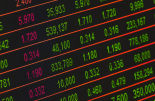eFront: UK private equity performance builds despite Brexit
eFront: UK private equity performance builds despite Brexit

eFront, the leading financial software and solutions provider dedicated to Alternative Investments, has published its latest annual Global Private Equity Performance Series, which shows that, despite political and economic uncertainty created by Brexit, the UK improved its already attractive risk-return profile for private equity investors.
Key findings
- UK LBO performance figures remained at a similar level in 2018 to that seen the previous year, with an IRR of 15.87% and TVPI (total value to paid-in) of 1.64x.
- The more recent vintages of 2009-2015 have seen exceptional performance, with a 19.11% of IRR and TVPI of 1.66x, putting the UK second globally, behind only the Nordics.
- ‘Extreme’ selection risk fell markedly, from 42.07% to 34.86%, putting the UK well above the global average and reinforcing the country’s position as an extremely attractive one for LBO investor.
- For venture capital, the UK sits exactly on the global market trendline for risk-adjusted returns.
- Younger funds (vintage years 2009-15) perform very strongly, requiring 3.4 years on average to return 1.67x of TVPI – making the UK one of the best performing regions globally.
- Both manager selection risk and associated return have median values and the market shows outstanding consistency.
According to eFront’s Global Private Equity Performance Series, Benelux, China, the Nordics and the UK continue to be the private equity markets with the most attractive risk-return profiles. However, over the past year France and Spain’s LBO markets saw significant improvements in performance as they converged with their mature Western European peers. This helped bump up risk-return trendlines and average global performance for LBOs.
The performance of UK funds remains broadly flat, while their ‘extreme’ selection risk rose from 2x to 2.18x over the past year, due to the top 5% performing funds exhibiting an increase in TVPI of more than 0.2x. The more recent vintages of 2009-2015 have seen exceptional performance, with a 19.11% of IRR and TVPI of 1.66x, putting the UK second globally , behind only the Nordics. Despite political and economic uncertainty created by Brexit, the UK therefore improved its already extremely attractive risk-return profile for LBO investors, remaining one of the strongest private equity markets globally.
The Nordic countries lead in terms of overall private equity performance, generating a combined IRR of 13.83%. They are followed by the UK (13.36%) and the Benelux (13.23%).
Since the global financial crisis, average time to liquidity – a measure of how long before investors see capital returned, for example from exits – has fallen by almost a third. In the seven vintage years following the 2008 crisis, time to liquidity fell most notably in China, Italy, Eastern Europe and Russian markets. By contrast, DACH markets benefited the least from this trend towards a more rapid return of capital.
For venture capital, Western Europe experienced the improvement in performance over the last year (from 1.34x to 1.47x), mostly due to a boost in Nordic, French, Italian and Spanish market performance. Younger UK funds (vintage years 2009-15) perform very strongly, requiring 3.4 years on average to return 1.67x of TVPI – making the UK one of the best performing regions globally. Italy’s venture capital market, meanwhile, has consolidated its position as a global outperformer, further increasing its IRR to 11.41% while reducing selection risk spreads.
However, US venture capital remains globally preeminent, with an IRR of 14.36%, while Chinese VCs made up some lost ground over the past year, exhibiting relatively higher increases in performance than their top performing peers.
Tarek Chouman, CEO of eFront, commented:
“In most of modern finance, things tend to matter only if they can be measured precisely and frequently. By contrast, in alternative investment, that which matters most – performance – is remarkably difficult to pin down. Knowing what the precise performance is, of any fund, region or market, at any moment in time, is a complicated process, layered with judgement and requiring context.”
“But it is possible to understand more, if you have access to the right data and the patience to interpret it. One intriguing headline from our data could be: ‘Holding periods plummet in wake of global financial crisis’. A closer look reveals this faster time to liquidity is almost entirely driven by emerging markets and venture capital.”








